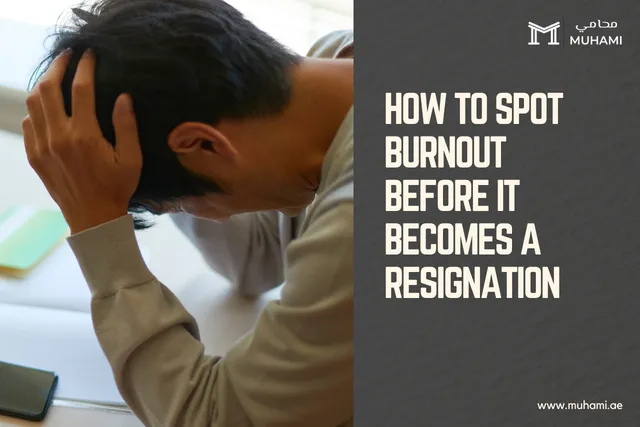The Role of a General Counsel - Ensuring an Enduring Legacy of Loyalty and Commitment

Ajith Madhavan, managing partner, Ajith M Legal Consultancy, shares his thoughts on General Counsel's nurturing relationships beyond employment.
A General Counsel ("GC") should have valuable experience in dealing with intricate, complex matters that require consideration of compliance, litigation and business processes, as well as managing challenging, cross-functional teams and projects simultaneously. The GC should think differently by considering the surrounding legal and regulatory environment and deliver the best proactive action to the business rather than concentrating on the task at hand and reacting to specific legal queries alone. They should think strategically, solve problems, and proactively assess risk and suggest solutions upfront. Instead of calling balls and strikes, GC should help in winning the game. They should demonstrate creativity in identifying practical solutions to eliminate or mitigate risks and assist businesses in advancing and becoming successful.
Another inevitable quality of a GC should be unblemished loyalty. Loyalty, commitment and dedication to the employer are timeless virtues that extend far beyond the cessation of employment. Even after parting ways, individuals who have exhibited these qualities continue to be successful in their careers, irrespective of their workplace and role. Their loyalty is evident in their unwavering support for the organisation's mission and goals, even from afar. Their commitment remains steadfast as they maintain a keen sense of responsibility towards the work they were entrusted with, ensuring its success and continuation. Their dedication persists as they carry the lessons learned and experiences gained into new endeavours, embodying the spirit of excellence and professionalism wherever they go. While the formal ties may have been severed, the bond forged through loyalty, commitment and dedication endures, serving as a testament to the lasting impact of a meaningful employer-employee relationship.
Once established, loyalty transcends the boundaries of a job title or pay cheque. It reflects the deep-seated connection forged through shared experiences, challenges overcome, and accomplishments achieved together. While employment contracts may come to an end, the bonds of loyalty endure, leaving a permanent mark on both parties involved.
Commitment, likewise, extends beyond the scope of daily tasks and responsibilities. It is a testament to one's unwavering dedication to continue upholding the values irrespective of their workplace and role. Whether it is going above and beyond to support colleagues, advocating for the organisation's mission or maintaining a sense of ownership over its success, committed individuals continue to embody the ethos of their former workplace long after they have moved on.
Upholding honesty, transparency and ethical conduct in all interactions are another set of essential qualities of a GC. These will foster trust and confidence in their character and reputation. These qualities are critical to a GC, as a lawyer is expected to have overriding duties, responsibilities, and loyalty to his profession and his clients. The GC, by delivering his functions and duties, shall protect the long-term interest of his client (organisation) and its stakeholders, including shareholders, directors, management representatives of your former organisation, clients, or industry contacts. Continuing to exhibit professionalism in all communications and interactions will maintain trust in one's demeanour and conduct.
Similarly, respecting confidentiality and maintaining discretion regarding sensitive information reinforces trust in a GC's ability to handle confidential matters with utmost integrity. Maintaining open, clear and respectful communication, even post-employment, fosters trust in GC's transparency and willingness to engage constructively.
GCs should also be flexible and adaptable to changing circumstances and challenges, even post-employment, which will reflect resilience and reinforce trust in the GC's ability to navigate various situations.
GC should continue to show respect for others' opinions, perspectives and boundaries even post-employment, which will reinforce trust in one's professionalism and consideration for others.
In today's dynamic and ever-evolving work landscape, the concept of loyalty and commitment to a former employer might seem like a relic of the past. However, for many individuals, their dedication to an organisation extends far beyond the confines of their employment tenure. These individuals exemplify the profound impact of fostering enduring relationships built on trust, mutual respect and shared values.
But what motivates individuals to remain loyal and committed even post-employment?
At the heart of it lies a genuine sense of gratitude and appreciation for the opportunities, mentorship and growth they experienced during their tenure of employment. Many attribute their continued loyalty to the positive relationships fostered with mentors and leaders, who served as pillars of support throughout their career journey.
Furthermore, maintaining a solid connection with an employer can yield numerous benefits for both parties involved. For employees, it can serve as a valuable source of professional networking, mentorship and career guidance. For employers/organisations, it represents an opportunity to tap into a pool of talented alumni who remain invested in the company's success and are eager to contribute in meaningful ways, whether through referrals, industry insights or collaborative partnerships.
In this interconnected world, the importance of nurturing relationships beyond employment cannot be overstated. By fostering a culture of mutual respect, open communication and genuine appreciation, organisations can cultivate a community of loyal and committed alumni who continue to champion their mission and values long after they have moved on to new opportunities.
In conclusion, as individuals continue to navigate their career paths, let us remember the value of cultivating relationships built on trust, gratitude and mutual respect, for it is these bonds that truly stand the test of time.
A version of this Article was first published in The Oath Magazine in May 2024.
Any Questions?
Connect with lawyers and seek expert legal advice
Share
Find by Article Category
Browse articles by categories
Featured Partnership
She Knows Best
Anonymous Advice, For Women By Women
Related Articles

What Does the UK’s Online Safety Crackd…
The U.K.'s Online Safety Act (OSA) has faced significant criticism for its …

What Does the UK’s Online Safety Crackdown Mean f…
The U.K.'s Online Safety Act (OSA) has faced …

The Power & Pitfalls of Joint Ventures …
I still remember sitting in my first JV meeting in Dubai. Two developers one ow…

The Power & Pitfalls of Joint Ventures in Dubai R…
I still remember sitting in my first JV meeting i…

How to Spot Burnout Before It Becomes a…
Burnout rarely happens overnight. It builds slowly, often silently, which makes…

How to Spot Burnout Before It Becomes a Resignati…
Burnout rarely happens overnight. It builds slowl…
